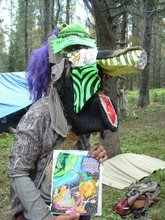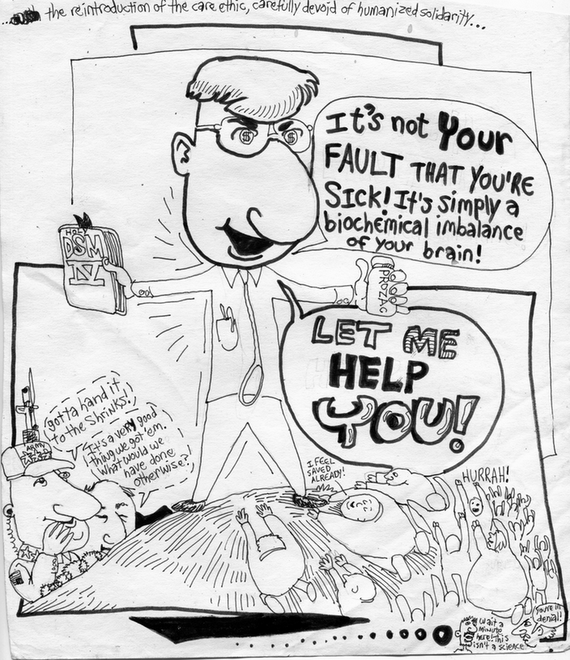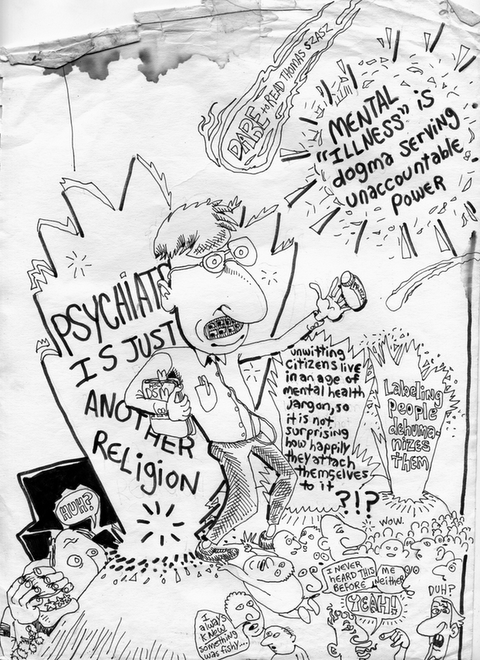Escaping the Matrix — How we the people can change the world
by Richard Moore. Published by The Cyberjournal Project, Redwood City, California
http://escapingthematrix.org/
Found out about this in an old issue of "Communities Magazine" (winter '06) by Molly Morgan. The part I shared with the author about how much I liked it is:
"...it is crucial to ...find our common identity, and come together as humans, moving beyond the ideological structures that have been created to divide us from one another. The current political systems were not designed..."
Basically, the author, Richard Moore seems to be articulating what indigenous folks worldwide have been trying to get out to the *strategically challenged* followers of colonialism (old and new) since the beginnings of their tresspasses, i.e. moving beyond dualistic forms of seeing each other.
Here's one excerpt from http://escapingthematrix.org/red_pill.html :
Our Harmonization Imperative
Our societies and political systems are characterized by competition and struggle among cultural factions and political parties. When we try to change this system by forming adversarial political movements we are playing into this game – a game rigged so that elites always win. If we really want to change the system, we need to learn how to come together as humans, moving beyond the ideological structures that have been created to divide us from one another. We are all in this together, and a better world for one is a better world for all. It’s not about winning, nor really even about agreement: it’s about working together in pursuit of our common interests.
To conclude, the "Table of Contents" section says a lot as well!:
Foreword
The Matrix
Are you ready for the red pill?
Imperialism and the Matrix
World War II and Pax Americana
Popular rebellion and the decline of the postwar blueprint
London banking elites and the strategy of oil-based dominance
World War I and the House of Morgan
The Anglo-American alliance
Abandoning Bretton Woods: the petrodollar scam
The neoliberal project
9/11 and the New American Century
The management of discontented societies
The UN and the new-millennium blueprint
Capitalism and the Matrix
Civilization in crisis
Elite responses to the crisis
A brief history of humanity
Natural evolution: competition within a cooperative web
The nature of primordial societies
Cultural evolution: stability within adaptability
Origins of civilization: inside and outside the Garden
The co-evolution of conditioning and hierarchy
We The People and the Transformational Imperative
We the People and cultural transformation
Lessons from our long experience of struggle
Our Transformational Imperative
Our Harmonization Imperative
Adversarial systems and representative democracy
Representative democracy and elite hegemony
Divide and rule: the role of factionalism
Our Harmonization Imperative
The dynamics of harmonization
Meeting dynamics: collaborative & adversarial
A gap in our cultural repertoire
Two promising meetings
The Michigan conference
Maclean’s “empowered dialog”
The Rogue Valley Wisdom Council
The role of a facilitator
The dynamics of harmonization
Collective wisdom: an ancient heritage
We the People
Envisioning a transformational movement
In search of a path to social transformation
Harmonization and cultural transformation
Cultural transformation at the level of community
Community empowerment as a transformational movement
What are the prospects for such a movement?
Political transformation and regime intervention
Social transformation
Transformation: the means are the ends
Envisioning a liberated global society
The basic paradigm: harmonization and community sovereignty
Regional affairs
A model for global self-governance
The management of the commons
The maintenance of peace
Democracy and property rights
Constitutions
The transition process
The moment of convergence
Common-sense economics and the management of the commons
Repossessing the commons
The global conversion project
Reflections on humanity’s future
Cultural evolution in a democracy
Education outside the Matrix
Democracy and personal liberation
Afterword
With knowledge comes responsibility
References
Bibliography and online resources
(...)
Media and propaganda
Online news and information
The current regime and how it got that way
Toward a sensible society
Dialog and community empowerment
What books have been pivotal to you? Please share below in the comments section
Books from off the top of my head include:
Wasase by Taiaiake Alfred
Stickman by Paola Igliori
The Underground History of American Education by John Taylor Gatto (http://www.johntaylorgatto.com/)
Subscribe to:
Post Comments (Atom)



No comments:
Post a Comment